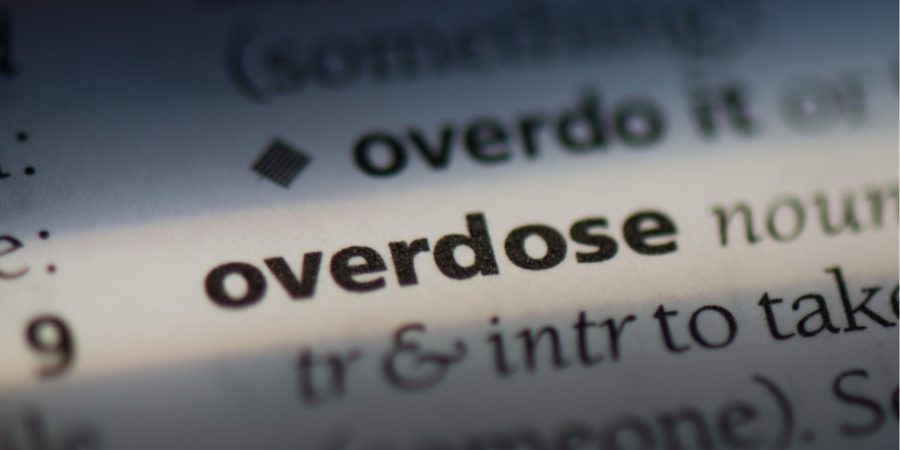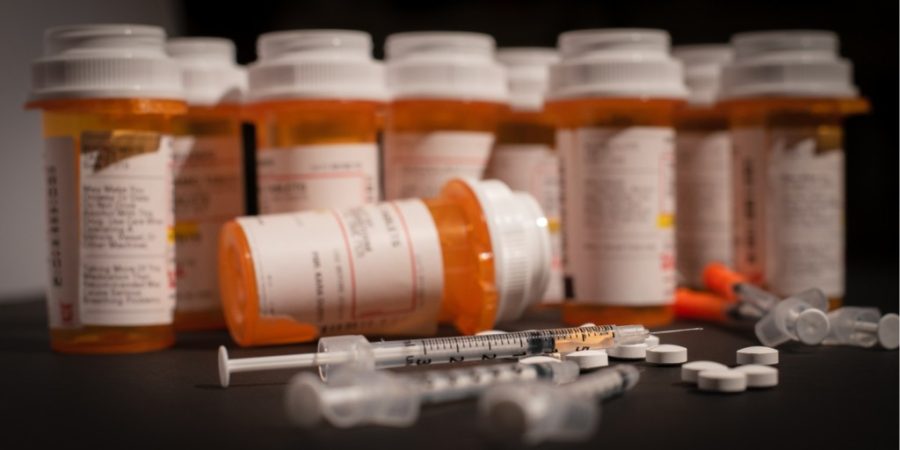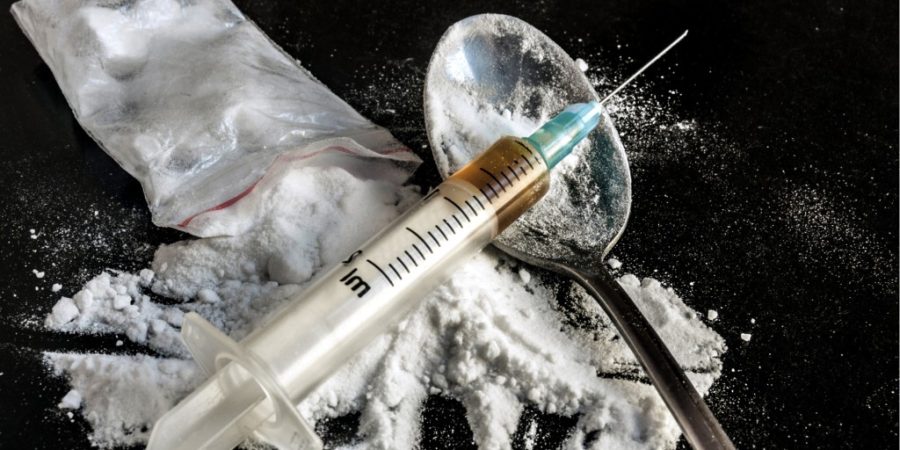
As we transition into 2021, many people feel tempted to forget about 2020 whenever possible. It was a difficult year f0r a lot of people, and most are looking forward to brighter days ahead. And while that’s an admirable attitude, 2020 Florida drug overdose deaths need to be studied to assess the danger during 2021.
Today, we’re looking at the statistics of recent drug overdoses to identify trends in drug overdose deaths in 2020. With this information, you will better be able to assess your risk for overdose and keep yourself safe and healthy in 2021.
Table of Contents
Florida Drug Overdose Death Statistics

It’s no secret that the coronavirus pandemic led to worsened mental health across the United States, and indeed most of the world. And because of the connection between mental health and addiction, many addiction statistics worsened in similar ways. In the U.S. as a whole, there were 80,000 drug overdose deaths, which shows an alarming increase when compared with the last five years.
And while that’s bad news for the nation as whole, Florida was one of the hardest-hit states. Between March of 2019 and September of 2020, Florida saw a 70 percent increase in deaths due to drug overdoses. Naturally, this drastic spike in Florida drug overdose deaths has experts asking one question: Can the COVID-19 pandemic really be responsible for such a large spike in overdose deaths?
Well, yes and no. Worsening mental health due to the coronavirus is certainly a factor, but it’s not the only factor. For years, the opioid epidemic has raged across the nation, and COVID-19 worsened an issue that was already there. Often, patients are prescribed opioid painkillers for legitimate pain, then accidentally become addicted to their new medication. When the prescription runs out, their addiction remains, leaving them to get opioids like heroin and fentanyl from the streets, where dosing is irregular and certain additives can drastically increase the risk of overdosing.
Another key factor is access to drug addiction treatment. Quitting drugs is never easy, and it’s particularly difficult when individuals feel like they can’t get professional help. In this way, ensuring that everyone has access to drug addiction recovery options will prove a key factor in lowering Florida drug deaths in 2021.
For now, though, what can you do to minimize the risk of drug overdose in yourself and the people around you? Let’s start by looking at common signs of overdose.
Drug Overdose Symptoms
Contrary to many popular depictions, immediate death is not the only result of a drug overdose. In fact, there are several signs of overdose that may appear before death, and it’s important to recognize them and immediately call 911 if you suspect that you or someone around you is overdosing. Some of the most common drug overdose symptoms include:
- Erratic behavior and abrupt mood swings
- Loss of consciousness
- Nausea and vomiting
- Loss of sensation and movement in limbs
- Hallucinations and/or delusions
- Trouble breathing
- An overly fast or slow heartbeat
- Seizures
In addition to watching out for these signs of drug overdose, you should be mindful of what substances you’re taking. If you choose to do drugs, know that recent drug overdoses are predominantly attributed to cocaine, prescription opioids, or heroin. While there are many substances that can lead to overdose, you should be especially careful with these specific drugs.

That said, the only way to eliminate your risk of overdose is to quit drugs for good. Let’s look at pre-emptive drug overdose treatments that can help keep you safe by overcoming your substance use disorder.
Florida Drug Overdose Treatment Options
For most people, the first step in the recovery process is a medical drug detox. While going “cold turkey” at home might sound preferable, the reality is often much less appealing. Drug withdrawal symptoms can range from deeply uncomfortable to deadly, and may include:
- Hot and cold flashes
- Intense headaches
- Nausea and vomiting
- Anxiety
- Delusions and/or hallucinations
- Seizures
For all of these reasons, many attempts to quit drugs at home go awry. Often, people will begin with the best of intentions, then feel that they have no choice but to relapse when the withdrawal symptoms become so intense that they feel life-threatening. But with a medical detox, you can drastically increase your odds of a successful recovery.
Medical Drug Detox
First, in a medical detox center, you don’t have to worry about your health. Your vital signs will be monitored by medical staff who will keep you safe and as comfortable as possible during this vulnerable period. Moreover, you can’t relapse if you’re in a sober area without drugs or alcohol. So both by keeping you away from harmful substances and by safeguarding your physical wellbeing, medical detox programs make a significant difference in drug addiction recovery.
Of course, treatment doesn’t end there.
Drug Rehab Programs
After completing a drug detox program, you may wish to transition to an inpatient treatment option. At this level of care, you will learn to address the mental aspects of addiction through treatment modalities like group therapy, 12-step groups, medication management, and many other vectors of treatment. This inpatient treatment option usually lasts for several weeks, and it lays the crucial groundwork for your long-term recovery.
From there, many people opt to enroll in an outpatient treatment program, like partial hospitalization. This allows you to live at home while attending on-site addiction recovery treatment. The biggest advantage of transitioning to outpatient treatment is that it you avoid the gap between “understanding addiction recovery lessons” and “knowing how to implement them in real life.” By having continued support as you transition back to daily life, you maximize your chances of staying away from drugs in the long term.
Florida Drug Addiction Recovery Is Here
At The Blackberry Center, we believe in a comprehensive, holistic approach to addiction recovery, and that means we won’t leave you on your own after you finish treatment. Our alumni services include several weekly meetings, including Christian recovery options. When you receive treatment here, you join a community that will continue to work with you to safeguard your recovery and your overall wellbeing.
Would you like to learn more about our treatment options? Call our admissions specialists at 888-512-9802 or ask your questions online. Together, we can lower Florida drug overdose deaths and improve your quality of life while doing it!
- Does overdosing hurt?
Generally, the symptoms of overdosing can range from deeply uncomfortable and distressing to painful. Many of the symptoms of overdosing, like intense headaches and vomiting, can be painful. Moreover, if you overdose and have to have your stomach pumped, that process is painful for some people.If you are considering overdosing as a means for suicide, you should immediately call the National Suicide Prevention Lifeline at 800-273-8255. Your life has value and is worth protecting, and there are people who care who are ready to speak with you and offer help.
- What does an overdose do to your body?
The exact mechanism of an overdose depends on the substance being abused, but generally an overdose overwhelms your body with too much of the drug. During a cocaine overdose, for example, you may experience raises in heart rate, blood pressure, body temperature, and your breathing. In general, an overdose takes whatever is enjoyable about a high and increases it so much that it becomes distressing and, in some cases, life-threatening. - What causes an overdose?
An overdose, as the name suggests, is when your body receives too much of a drug. While the specifics can vary depending on the substance, the idea is that too much of the drug stops key functions in your brain and/or body, which can endanger your health and may lead to death. For example, during an opioid overdose, opioid receptors in your brain may be so overwhelmed that they stop functioning, which can lead to troubled breathing and, eventually, death. - What are the symptoms of overdose?
Symptoms of overdose can vary depending on the substance. However, the most common symptoms of overdose are:
- Erratic behavior and abrupt mood swings
- Loss of consciousness
- Nausea and vomiting
- Loss of sensation and movement in limbs
- Hallucinations and/or delusions
- Trouble breathing
- An overly fast or slow heartbeat
- Seizures
The post Florida Drug Overdose Deaths on the Rise: 2019 vs 2020 appeared first on The Blackberry Center of Central Florida.
Source
Original Author: The Blackberry Center

